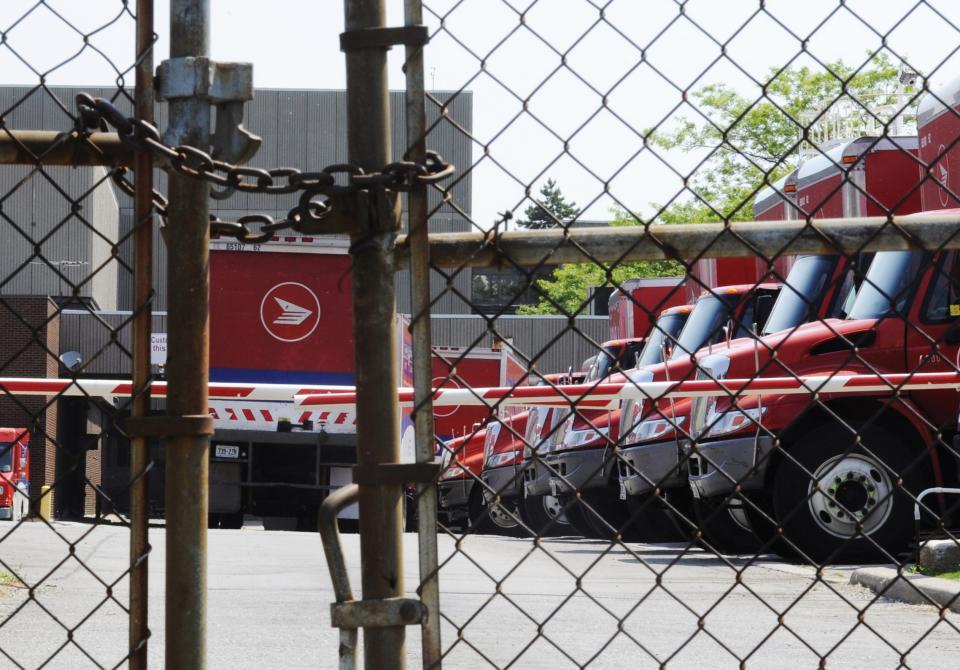Small business owners cry foul over Canada Post plan

Grant Purdy is no fan of Canada Post. And you'd be hard pressed to find many Canadians today who don't have a huge gripe with the federal postal service and its sweeping plans for change.
Purdy, 70, is the owner of the Book Gallery, a used book store in Carleton Place, outside of Ottawa.
More than 10 per cent of his business comes from online sales and he relies on the Canada Post to ship copies of rare and unusual books to customers around the world.
“Sometimes the orders are really exotic,” Purdy told Yahoo Canada Finance. “I’ve got a lady in Singapore who wants anything I’ve got on Canadian trains.”
The small business simply couldn’t survive another hike in delivery costs. Selling books is depressing enough, never mind the high cost of shipping them outside Canada's borders.
“The higher our postal rates go, the less competitive we are in selling books around the world,” he said.
It was good news, then, to learn parcel delivery is the one service to be spared in the latest, and most dramatic, round of actions designed to save the money-losing postal service up to $900 million a year.
The sweeping five-stage plan, announced Wednesday, will phase out door-to-door delivery in urban areas, raise the price of a stamp by 35 per cent and eliminate about 8,000 jobs.
Consumer habits changing
Parcel delivery remains the one bright light for Canada Post in a digital age where most every activity – from paying bills to sending personal greetings – can, and is, done faster and more efficiently through the Internet.
Fueling the demand is our increasing appetite for online shopping. In the weeks following the annual sales extravaganzas that are Black Friday and Cyber Monday, the postal service saw a 20 per cent bump in parcel volume.
Last Monday marked the fourth day since November where more than a million parcels were handled by Canada Post in a single day.
“I’ve never seen that before,” said Anick Losier, a postal spokesperson.
Even Quebec, which has traditionally lagged behind other provinces in the e-commerce trend, has given into what’s proving a global shift in shopping habits. Parcel volumes are up 24 per cent this year over last.
By contrast, the volume of letters delivered in Canada dropped 30 per cent last year alone. From 2011 to 2012, the service handled 255 million fewer pieces of mail.
Losier said the new action plan reflects those shifts in customer habit.
“We’re trying to adapt to this new reality because we had a business model that was really created around letter delivery,” she said.
The Canadian Federation of Independent Business (CFIB) has condemned the plan. It says the increase in the cost of a stamp will hurt small businesses that still use the mail to connect with customers or invoice and pay suppliers.
In an October 2013 survey of small business owners, it was found that 40 per cent send at least 50 pieces of traditional letter mail per month and 98 per cent still use letter mail every month.
On the other hand, most CFIB members support a move to community mailboxes.
As for Purdy, he just wants to keep the doors of his shop open as long as he can. After 22 years, running the Book Gallery is proving more of a labour of love than a way to make a living.
“There are lots of warm fuzzies," Purdy said. "You find people the books they are looking for and they are very grateful.”

 Yahoo Finance
Yahoo Finance 
